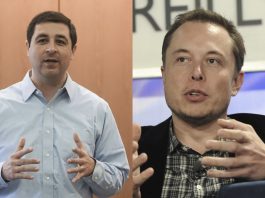We are republishing articles from the Kenosha riots to remind voters what occurred that week. Tony Evers, Mandela Barnes, and Josh Kaul – as well as weak local leadership – must be held accountable for surrendering the city to a criminal mob.
We were there. We witnessed a credit union being torched in front of us by arsonists and a government building and businesses ablaze with zero pushback by police and no presence by the National Guard. The mainstream media were nowhere to be found amidst the mayhem. It was the second day Kenosha burned. Evers and Barnes were inciting the violence with reckless statements, and Kaul stood negligently silent.
Kenosha burned last night. Here’s what we witnessed.
One man, sitting outside the Kenosha County Courthouse, which was protected by stoic riot-gear wearing police and covered with graffiti, told us he was from Chicago. Were others from Chicago, we asked?
“A lot. There’s more coming tomorrow,” the man said. When we began to inquire about which groups were organizing the Chicago presence, a woman, who had been yelling in the face of silent police a few minutes before, shouted “get the f*ck out of here, white boy,” and promised to make us famous.
“They kill us because they fear us. Honor the dead,” the courthouse graffiti read. The graffiti on the burning County Credit Union said, “kill cops.” ACAB, an acronym meaning “All Cops Are Bastards,” was painted throughout the vandalized, burning and boarded-up downtown. “F*ck the police,” said other sprawled words with the drawing of a pig face, near the words, “Black Lives Matter.” The name of a police officer some people think shot Jacob Blake was painted on buildings. One piece of graffiti with that officer’s name proclaimed “you caused this,” with a spray painted arrow directed toward a vandalized, burning Corrections building.
We’re Jim Piwowarczyk and Jessica McBride, Wisconsin journalists. We headed to Kenosha to see what was happening on the streets on the second day of destruction. Watch our main live stream:
Billows of acrid smoke draped a smog-like blanket over downtown, burning our eyes, two days after Jacob Blake, 29, was shot by police in a viral video that went national. The shooting is under investigation.
Kenosha Riots Burn Through Downtown
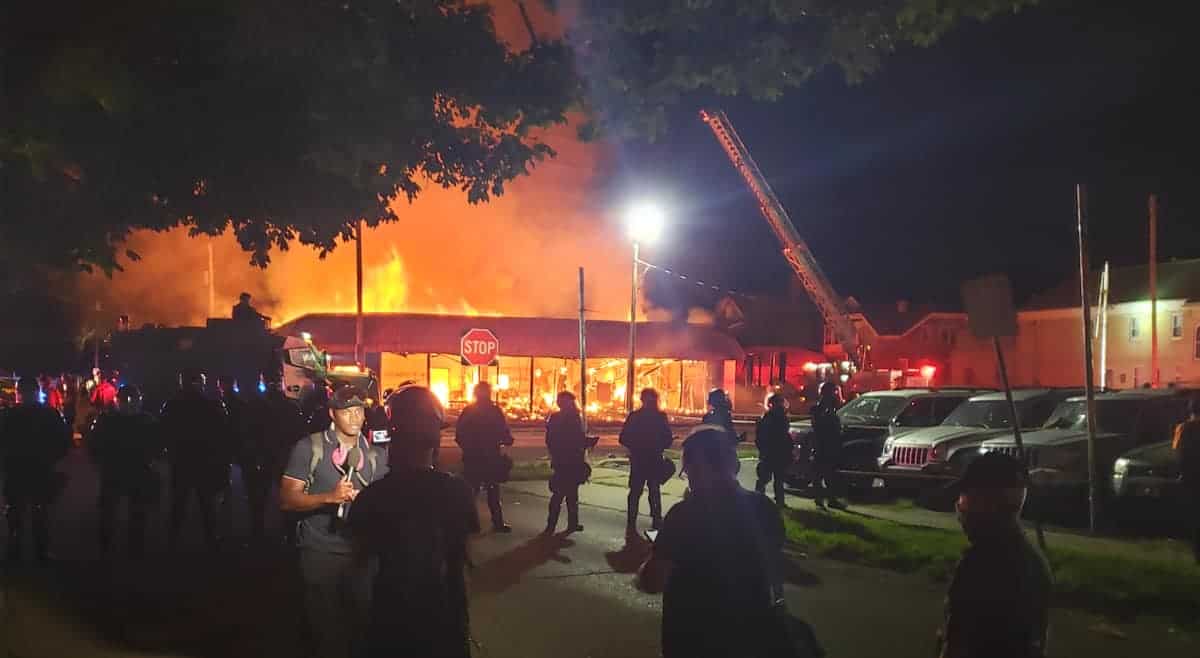
To our right, a firework went off with a loud bang, surprising us. People, most of them appearing to be in their 20s but including some juveniles, milled aimlessly around during the late evening of Aug. 24 and early morning hours of Aug. 25, despite the 8 p.m. curfew, taunting the cops who stood in some areas in riot gear. People smashed windows as a credit union burst into flames, observed the unfolding scene, and one man shouted, “I’m going to fry me a pig.”
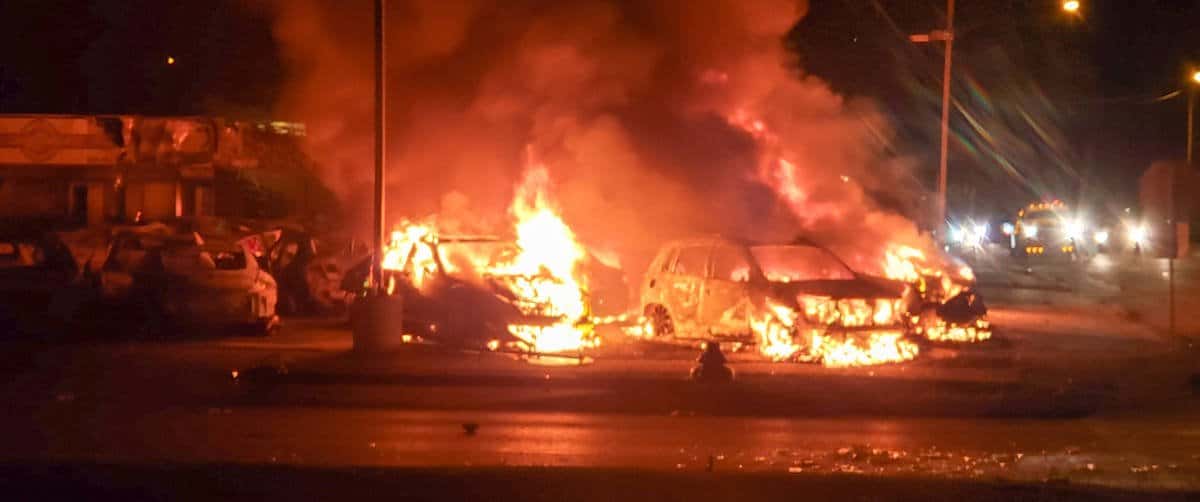
The boarded-up buildings made it look like a hurricane was coming, and, in a way, one had. A massive inferno demolished an office furniture store (people called it a “mattress store”). A Department of Corrections Community Corrections office (people called it “probation and parole”), was completely engulfed. An American flag whipped in the smoke-filled wind. The heat emanated from the fires, and small explosions popped from burning cars.
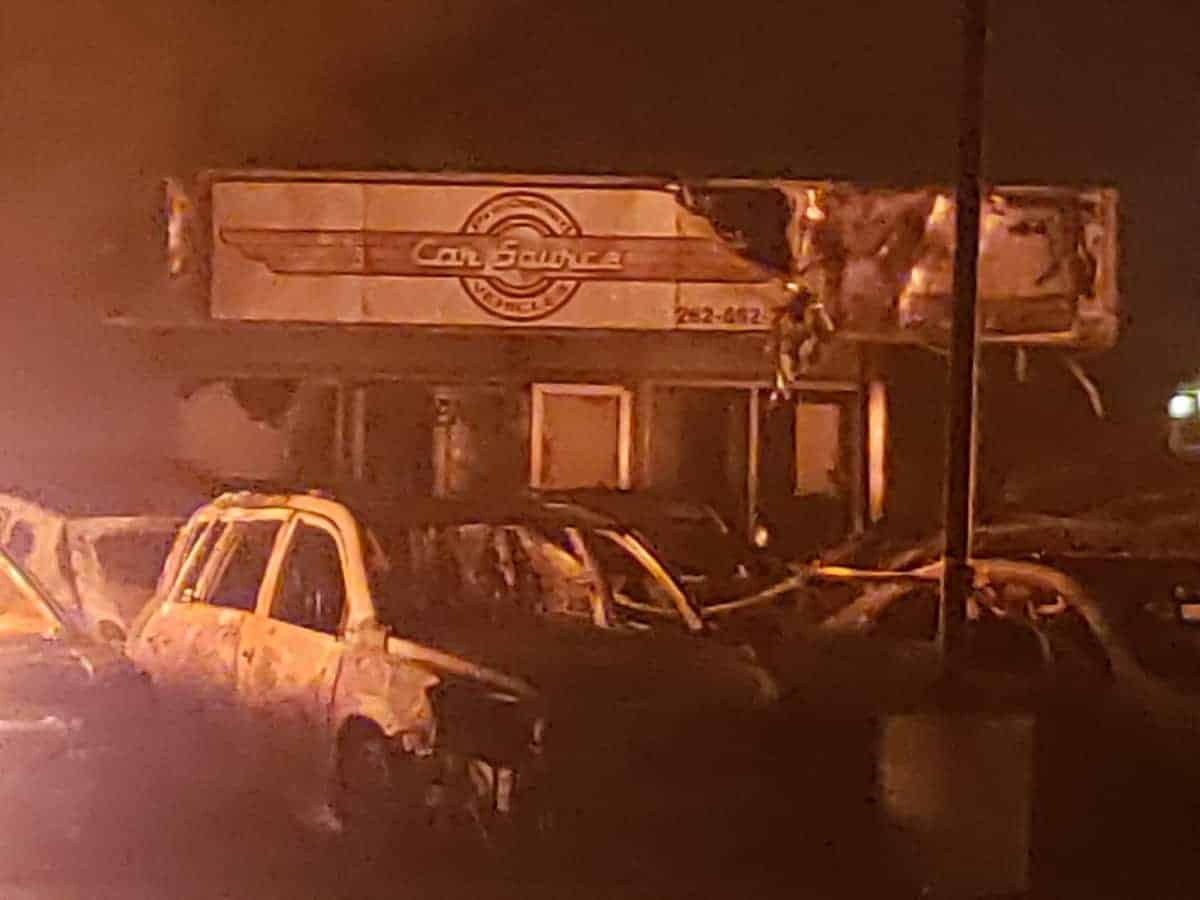
The cops stood silently by, not engaging, and protecting the perimeter so firefighters could safely do their jobs putting the fires out. They couldn’t keep up. We didn’t see a single cop engage with people or arrest anyone. They just stood quietly and took it, watching the vandalism unfold and having invective lobbed in their faces. Earlier, they used tear gas and rubber bullets to disperse crowds when the curfew hour hit, after people threw bottles and fireworks at cops. The crowds were broken now into people, many in masks and some in Black Lives Matter T-shirts or walking around without shirts or carrying black umbrellas, hanging out in smaller clusters or randomly roving around on their own or in pairs.
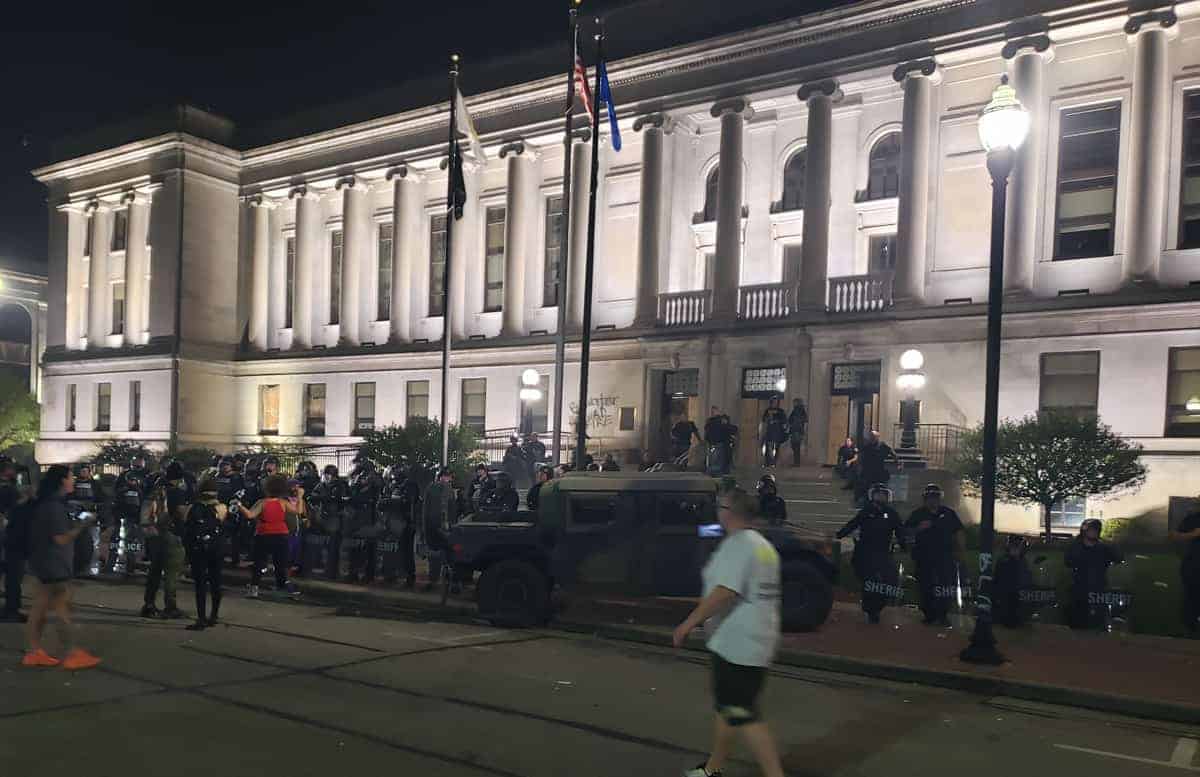
Here’s another live stream:
We counted more than six fires in a several block area from 58th to 60th Streets, saw rows of smashed out cars with spider-webbed windshields, and noticed homes and businesses with broken windows. Kenosha’s downtown was like a scene from Mad Max, apocalyptic appearing. We sidestepped the shattered glass and the heavy uprooted street light poles. Clusters of shouting people squared off against the police, calling them hateful things and swearing at them.
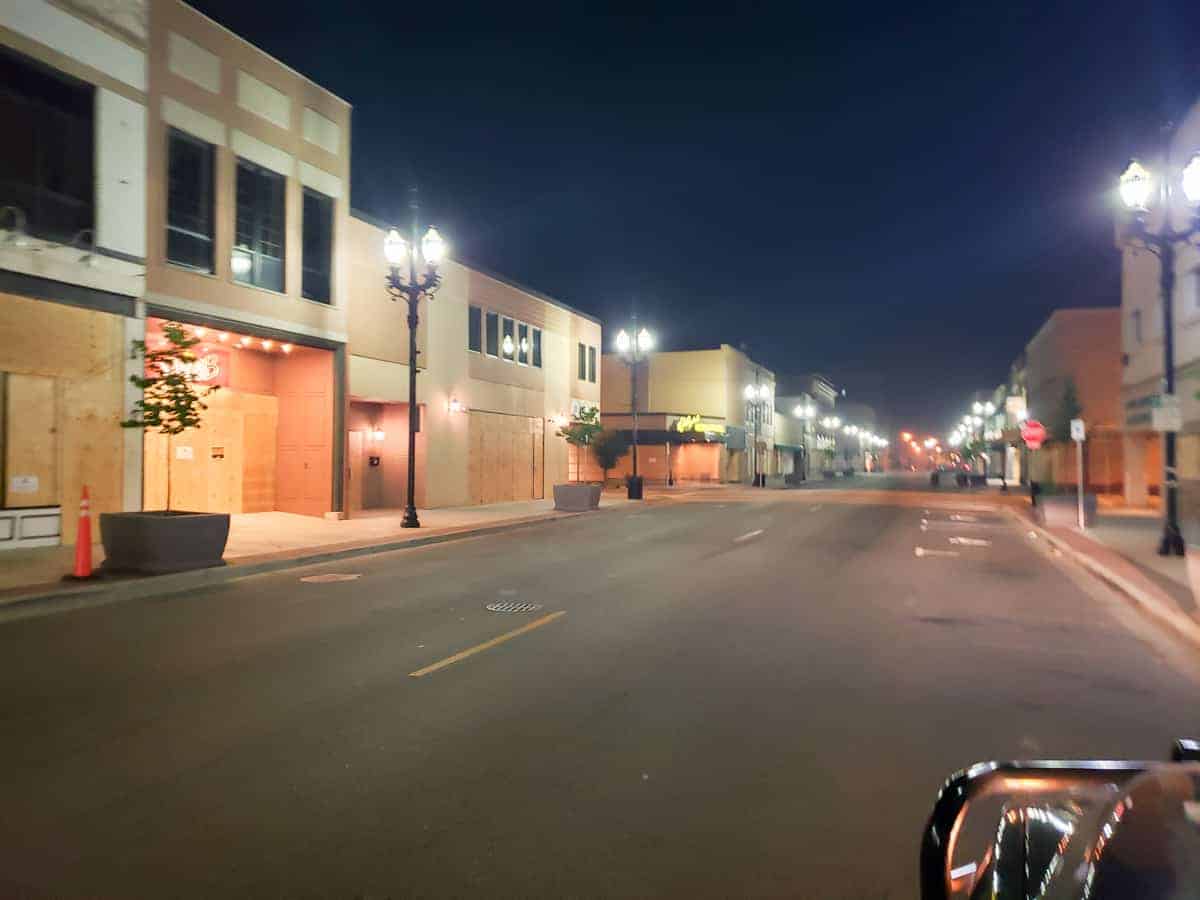
This was the destruction of an American city without any apparent news crews in sight (at least when and where we were there), with a National Guard force so scant you could barely find them and with an undermanned police force pushed back to watching.
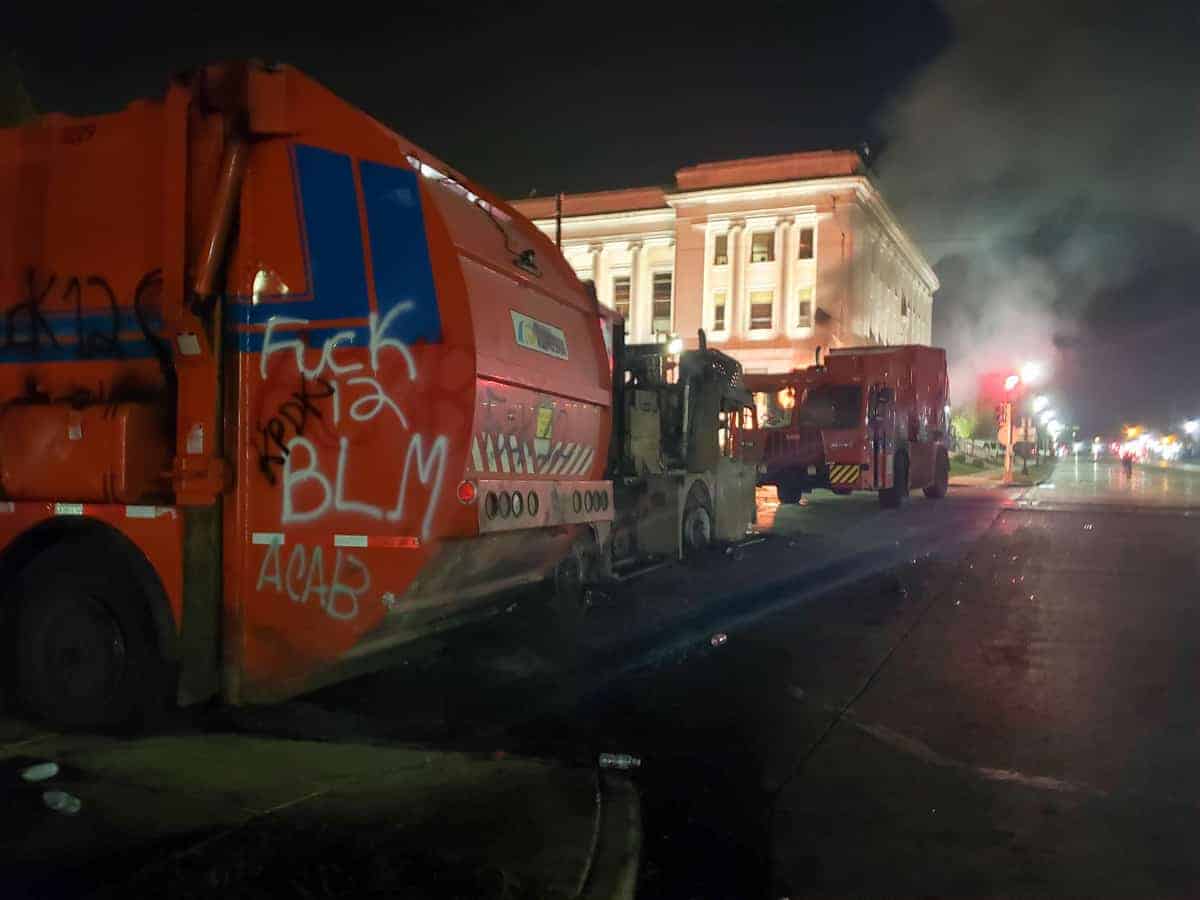
We commented that the devastation reminded us of the scenes we saw on television in Minneapolis, but on a lesser scale due to the city’s size, and a woman walking by said, “It’s only day two,” as if promising more to come. This was Kenosha, Wisconsin’s 4th largest city, a normally peaceful old manufacturing town sandwiched between Chicago and Milwaukee.
When we stumbled on a few City of Kenosha residents, they told us, in contrast, that they were there to observe, and they weren’t happy at all about the destruction they were seeing. They included an African-American homeless man and a young African-American mother, who both said they will have to live with the mess. “We have to live there,” the man said, saying he thought the destruction was bad. “It ruins the business.”
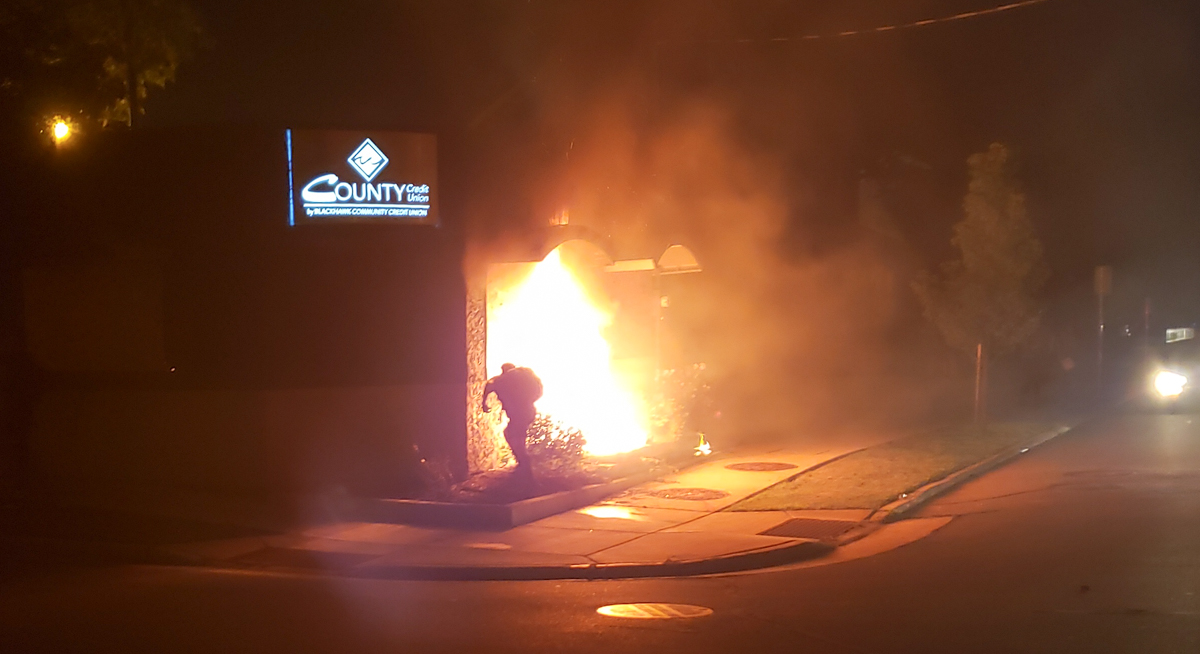
The woman, standing in front of a torched car at a downtown car dealership, said she was thinking of buying that exact car before the police shooting caught on video propelled Kenosha onto the radar of Black Lives Matter. “I’m not justifying the police, but this is also our community that we’re burning…Our kids are going to grow up into this. I have a 9-year-old. A peaceful protest is personally fine, but this?” the woman said as cars burned behind her, and police cars raced by.
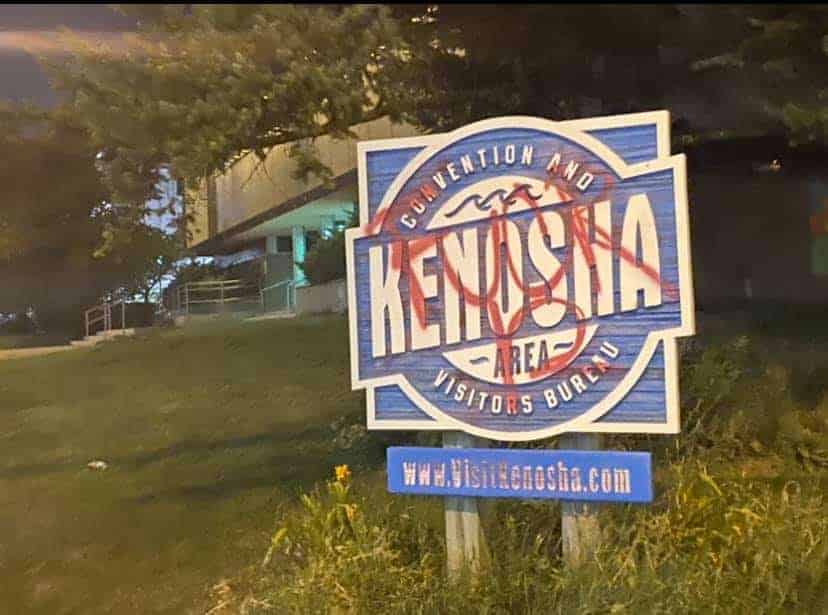
A dump truck was on fire in front of the courthouse.
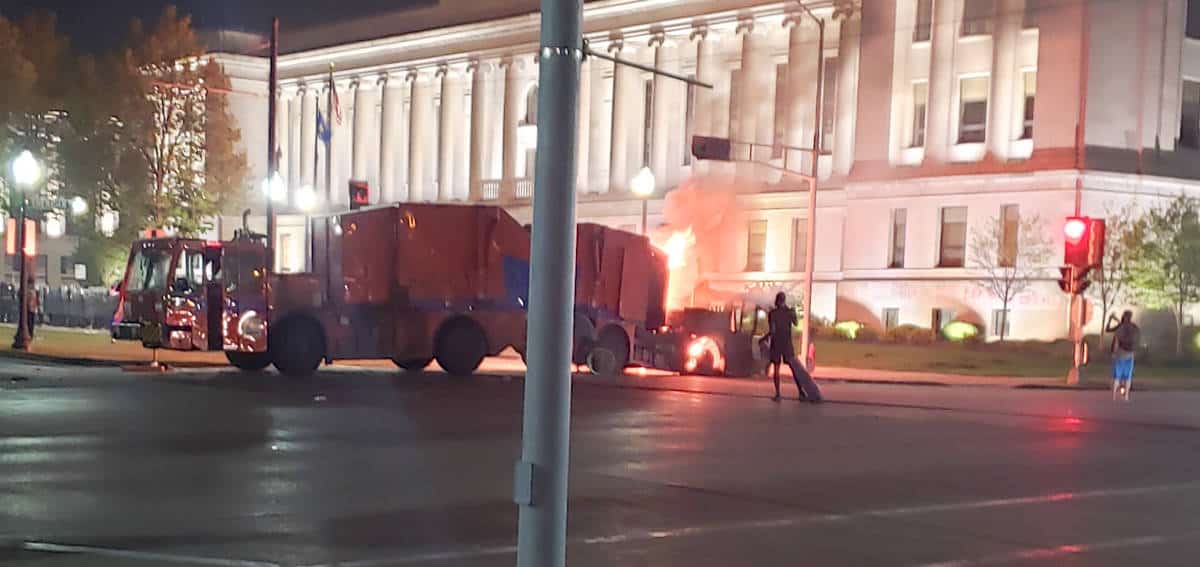
Kenosha, Wisconsin, August 24-25, 2020.
Table of Contents
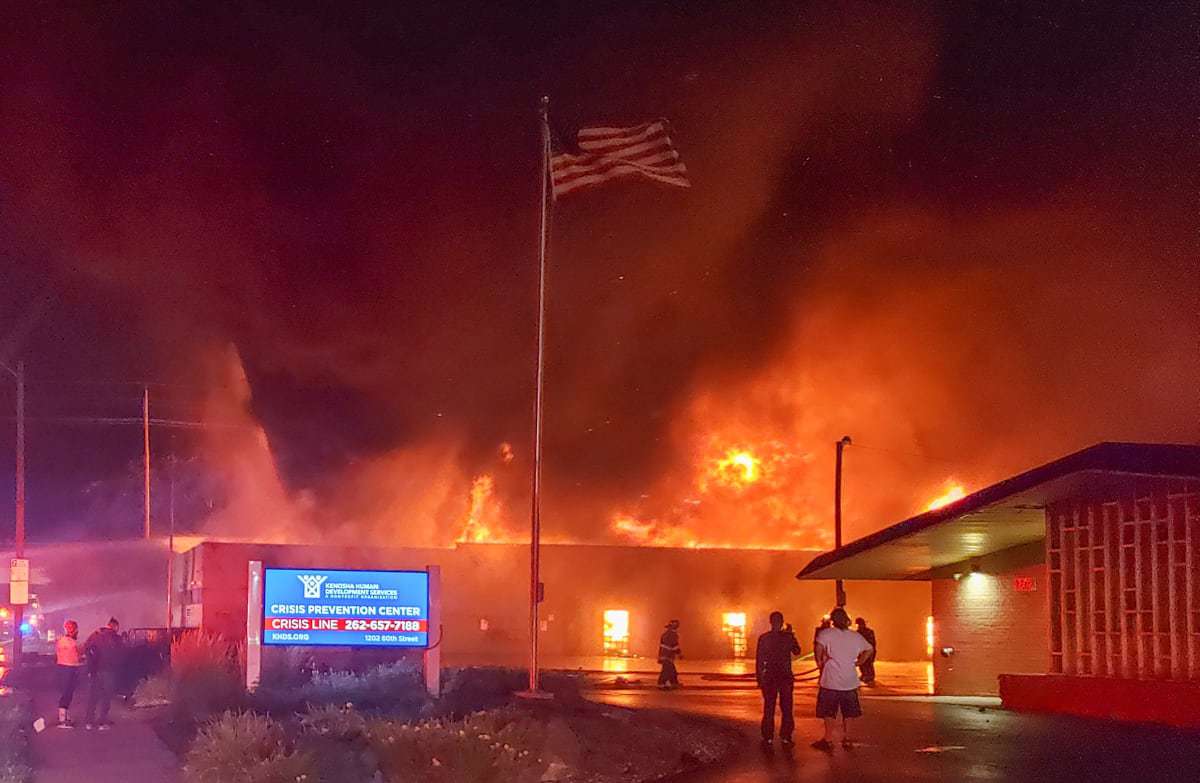
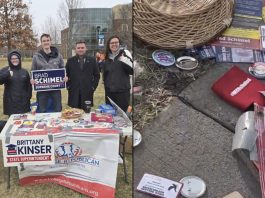
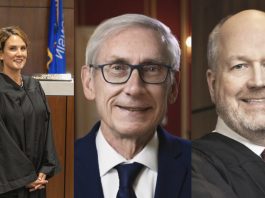


![WATCH: Elon Musk Town Hall Rally in Green Bay [FULL Video]](https://www.wisconsinrightnow.com/wp-content/uploads/2022/04/Elon_Musk_3018710552-265x198.jpg)
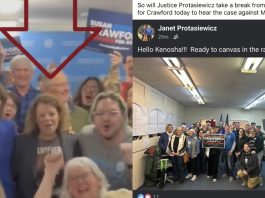
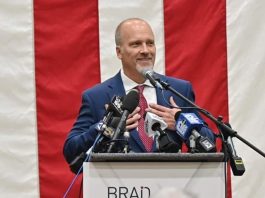
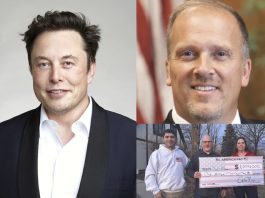
![The Great American Company [Up Against the Wall]](https://www.wisconsinrightnow.com/wp-content/uploads/2025/03/MixCollage-29-Mar-2025-09-08-PM-4504-265x198.jpg)
![The Wisconsin DOJ’s ‘Unlawful’ Lawman [WRN Voices] josh kaul](https://www.wisconsinrightnow.com/wp-content/uploads/2025/03/MixCollage-29-Mar-2025-08-48-PM-2468-265x198.jpg)

